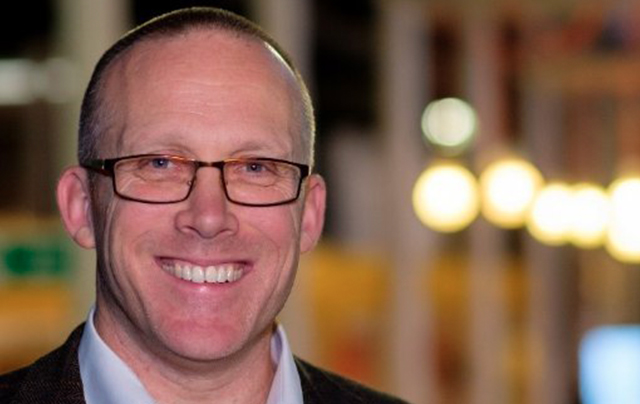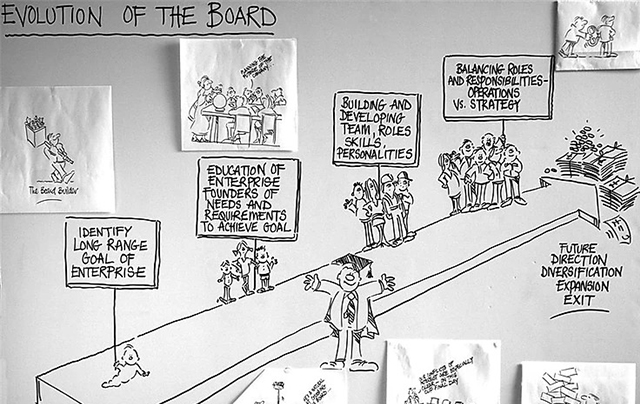First published on the Engine Shed website, and reproduced here with their kind permission.

It’s funny how some things work out. As I finalise the handover of the Engine Shed project to my excellent successor, we have also just been reflecting on the interesting experiment that was Bristol Technology Festival (BTF) week. As I try to write down what I have learnt over seven years of the Engine Shed journey and documenting the complex web that we find ourselves at, anywhere from the centre of the web to at the benevolent edge, I see that a number of strands of our learnings manifested in the Festival. The objective of BTF was to create a festival that highlighted the breadth, depth and accessibility of the local tech sector and to promote diversity and inclusion as best we could as a part of that. Whilst tech isn’t the sole remit of Engine Shed, it’s a space we know well.
The Festival was mostly a success – especially for something we kind of did in our spare time, pulling in a load of favours and volunteer time and with only a couple of hundred pounds to pull the umbrella brand and framework together. We saw 42 events, with an aggregate capacity of just under 4000, across 22 venues, targeting techies, young people, business leaders and the non-tech population. Not bad as a start. We will build on this year and work towards Bristol Technology Festival 2020 to reach the parts that we didn’t reach.
When we started the Engine Shed journey we didn’t use the language of ‘inclusion’ or ‘inclusive growth’, but we did have a sense that we really needed to make the high-octane economic development activity (such as through the SETsquared incubator) work better for the city economy. We have strived to develop projects which turn the dial on the accessibility of pathways into employment and entrepreneurship for under-represented communities, rather than just change the demographic mix of the people we engage with. By no means are we expert, or an exemplar, but we have learnt and experimented. We have learned that we need to engage with youngsters as well as adults, and also the inspirers of our school students.
So, within BTF, there were events for young people, an event for teachers, an event to help people “be an ally” and events across the city. The biggest piece for me, was to make sure that the tech sector was visible – in all its breadth – to the lay population. Some great coverage by the BBC TV team, meant that over 300,000 people saw footage of the Festival on each of two evening broadcasts. The highlight for me was the (somewhat older than me) gentleman, who had heard about the Tech Fair (Colston Hall on Saturday 10th) on Radio Bristol and wanted to come and see what was going on. He was so enthusiastic about the technology and the people – he said he’d engaged in lots of conversations. Now, he is unlikely to make a career step into full-stack software development, quantum cryptography or UX design, but he’ll certainly now be a champion of what’s great about Bristol and the tech sector that he wasn’t equipped to be able to be before – because he didn’t know. If he doesn’t have his own grandchildren, he’ll undoubtedly talk to his friends who have – and that’s how we raise the profile of the opportunities in science & technology on our doorstep, and the burgeoning need to include our diverse local talent to create better tech businesses.
The other two strands of Engine Shed’s activities, that also relate to BTF, are ‘innovation’ and ‘growth’. Symbiotic of course. We have done quite a lot – in fact pioneered the concept of ‘enablement’ of ecosystems. We have also nurtured a lot of ‘innovation’ related networks – from the technical to the more philosophical. One of the networks we have worked closely with – and I hope provided some fuel into – for the last six years is BrisTech, which of course was one of the anchor events for this year’s Festival. By ensuring there were events that covered most aspects of the ‘growth’ agenda, from SETsquared’s Idea2Pitch at Knowle West Media Centre to the Funding Workshop and the SW Innovation Support Landscape event at the SS Great Britain (where else!). Of course, everyday is a school day for me, and chairing the RSA event on the Future of Work with a colleague from the University of Bristol, taught me to be prepared for some quite challenging questions (and to not position yourself quite so close to the front row!). How do we fix pernicious capitalism, anyone?
Underpinning the innovation, growth and inclusion themes is a need for place-making – which of course is why festivals in Bristol are so important. Everyone has something to gain from the stronger placemaking of the city’s strengths – if it’s done in an inclusive way: i.e. we demonstrate the opportunities for all. Whether it’s the universities benefitting from profile of the city to attract students and staff from across the globe, or youngsters in Oldmixon or Kingswood seeing that there are opportunities for them. Local profile is as important as national and international profile. One of the caveats is the risk of the boom in cost of living by raising the national profile. That’s why local profile-raising is important – and, to weave in the inclusion strand – we really, really need the diverse talent in the city to be part of the tech and creative economy, and if we are able to change the dial on including more people, house/rental costs become less of an issue. In the long run. Worth working towards.
Throughout Engine Shed’s journey we have tried to demonstrate our values of Collaboration, Openness, Facilitation, Fearlessness and Excellence. I don’t think BTF was Excellent – it had some rough edges that we need to do better at next year but crowdsourcing all those events was certainly Collaborative. Being Open to new ideas, Facilitating the network to come together for this and being prepared to take a risk (Fearlessly, obviously) to pull this off for a few quid, has been a natural culmination of six years work.
What else have I learned on the journey? You’ll just have to wait for the book, next year!
Onwards and upwards.



